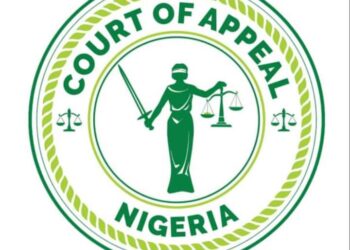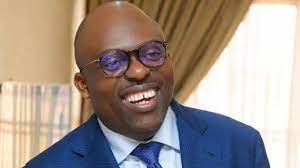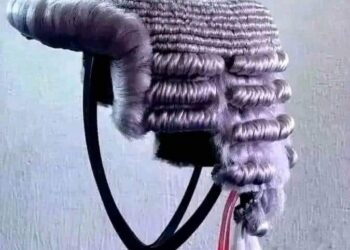Echoes of the 2023 general elections reverberated Monday as President Court of Appeal Justice Monica Dongban-Mensem said the appellate court received a total of 813 appeals arising from the primary elections across the 36 states of the federation and FCT.
She also said that a total number of 98 panels were constituted across the various tribunals to handle about 1,209 petitions filed from the general elections.
He gave a breakdown of the petitions filed to include Presidential (5), Senatorial (147), House of Reps (417), States House of Assembly (557) and gubernatorial elections with (83) from 24 states that participated in the elections.
Dongban-Mensem stated this while speaking at this year’s Legal Year at the Court of Appeal Headquarters in Abuja.
At the ceremony were Chief Justice of Nigeria, Olukayode Ariwoola, Attorney General of the Federation and Minister of Justice Lateef Fagbemi (SAN), two former CJN, Justice Walter Onnoghen and his successor, Justice Mahmud Mohammed, President Nigerian Bar Association (NBA) Yakubu Maikyau (SAN), representative of the Body of Senior Advocates of Nigeria (BOSAN) and former AGF, Kanu Agabi, and other legal stakeholders.
The annual high-octane ceremony was preceded by a guard of honour mounted by the men of the Nigerian Police and its band.
Addressing the gathering, Justice Dongban-Mensem said the appeals filed were diligently heard and determined in a timely manner and in compliance with the tenets enshrined in the 1999 Constitution of the Federal Republic of Nigeria (as amended) and other regulatory rules.
The election petition tribunals, she further said, was established in three distinct categories namely; Presidential, the Governorship and the National/States Assembly in order to facilitate the efficient handling of all the election-related disputes.
She said: “Following the conduct of primary elections prior to the 2023 general elections, the court received a total of 813 appeals arising from the primary elections, across the 36 states of the federation and the FCT.
“A total of 98 panels were constituted across the various tribunals tasked with the responsibility to handle the 1,209 petitions filed.”
She attributed the success the court was able to make of the cases to the various capacity building workshops and training it organised for Judges and secretariat staff in collaboration with partners and stakeholders.
Justice Dongban-Mensem assured that the court would continue to equip staff members of various levels with the necessary skills to adeptly navigate the dynamic legal environment.
On judges’ welfare, she said the main official vehicles of judges have exceeded the recommended service threshold of four years, saying “It is scandalous that Hon. Justices who have been serving our great nation are using scrap vehicles.”
…Fagbemi cautions
Also speaking at the event, AGF Fagbemi, who acknowledged the entitlement of individuals to freedom of expression, cautioned Nigerians against issue threat to judges.
He said: “It is abhorrent of any legal practitioner or judicial officer to be threatened or worse still attacked for doing their job.”
Fagbemi assured that the President Bola Ahmed Tinubu administration would leave no stone unturned for a smooth justice delivery in the interest of all Nigerians.
CJN tasks NASS
Meanwhile, Chief Justice of Nigeria Ariwoola has called on the National Assembly and State Houses of Assembly to appropriate a living budget for the Judiciary.
The CJN made the appeal Monday while delivering a keynote address at the opening ceremony of the 2023 roundtable for heads of courts at the National Judicial Institute (NJI) in Abuja.
The theme for the event is: “Repositioning the Judiciary as the fulcrum of the rule of law”
Declaring the event open, Ariwoola emphasised that the judiciary needed the support of all arms of government to function effectively.
According to the CJN, anything short of that was akin to asking the judiciary to “clap with one hand’
Ariwoola advocated the provision of proper infrastructure, modern technology and well-trained personnel to handle the increasing cases in court, describing it as very key.
“My lords, adequate budgetary provision for the judiciary remains a challenge, more so, in face of global economic meltdown.
“It is in light of the above that I will urge the National Assembly and the State Houses of Assemblies to appropriate a living budget for the judiciary as anything short of doing that is akin to asking the judiciary to clap with one hand in view of high expectations from Nigerians,” the CJN said.
On corruption, the CJN charged the judges to work assiduously towards eradicating corruption within the judiciary, adding: “It undermines the rule of law and erodes public trust in the judiciary’s impartiality.”
Also in a remark, the NJI Administrator, Justice Salisu Garba Abdullahi, charged the head of courts to remain steadfast in their commitment to upholding the rule of law, while also imploring them to embrace technological innovation in the day-to-day operation of the court.
Speaking earlier in a welcome address, the Doyen of the heads of courts, Justice Kulu Aliyu, enjoined colleagues to be abreast global best practices, saying as arbiters of justice, they must also come to terms with the expectations of the general populace and international community in the discharge of their duties.




